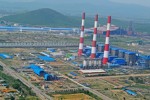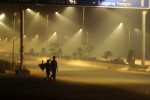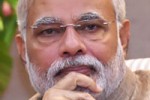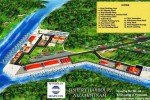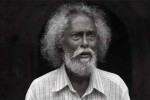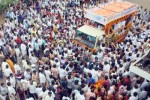Odisha Channel Bureau
BHUBANESWAR: The definitive suspension of the POSCO project in Odisha is an important victory for social movements, peasants, fisher folks and forest dwellers in the area who have been fighting to protect their land, livelihood and environment over the past twelve years, according to international human rights groups.
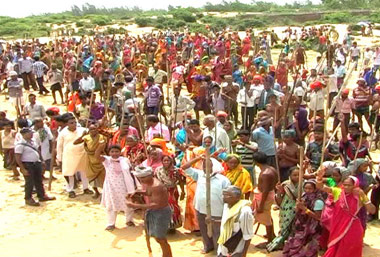
The POSCO-India project represented the largest potential Foreign Direct Investment (FDI) in India’s history, entailing a massive integrated steel complex, iron ore mines, and a captive port. The project required over 12,000 acres of land and the forcible displacement of up to 20,000 people from their homes and livelihoods. In recent years, human rights groups around the world have coordinated collective advocacy to confront the serious threats to human rights and the environment posed by the project, in response to the leadership of directly affected communities.
ESCR-Net member POSCO Pratirodh Sangram Samiti (Anti-POSCO People’s Movement, or PPSS) emerged in 2005, after learning of the signature of a Memorandum of Understanding between the Korea-based POSCO corporation and the government of the eastern Indian state of Odisha. They subsequently sustained a twelve-year struggle to retain their lands and continue their sustainable farming practices, centered on betel vine cultivation and the production of cashews, mangos and rice.
“We strongly believe this is not just a victory for our people but also the victory for the all the peasants, fisher folks, forest dwellers who are democratically fighting to protect their land, livelihood and environment,” a PPSS spokesperson said.
Over the last 12 years, the affected communities have had to pay a heavy price for defending their human rights in the face of the POSCO project. Since 2005, four people have been killed, several injured, and hundreds of people have been jailed. The criminalization of human rights defenders has led to more than 2000 warrants and over 400 criminal charges issued against men and women living in the project-affected area. Despite the withdrawal of POSCO, the Government of Odisha is currently retaining possession of lands that were seized for the project, while refusing to acknowledge the harm to livelihoods and the environment caused by cutting over 170,000 trees.
“This is a victory against false propaganda, intimidation, false cases and threats of forcible eviction…We sincerely convey our thanks to all activists, organizations, people’s movements, progressive intellectuals, like-minded political parties, media and concerned individuals who have extended support to our struggle.” the PPSS highlighted.
The PPSS calls on the government of India to provide compensation to the families of those who were killed, access to medical attention for the injured, and compensation for those who had crops destroyed; immediate return of all lands seized from villagers; recognition of community rights over forested lands as specified in the Forest Rights Act (2006); and the withdrawal of all fabricated and false charges against villagers who have mobilized to defend human rights threatened by the POSCO project.
While welcoming POSCO’s withdrawal of its project in Odisha, ESCR-Net continues to stand with the PPSS in their ongoing demands for justice, stressing the human rights obligations of India to redress violations and ensure the well-being and participation of affected communities.
“The committed struggle of the PPSS inspired the solidarity and collective action of 20 ESCR-Net member organizations and many allies across multiple countries, yet their struggle against dispossession is far too common in a global economy that regularly treats the human rights of communities as problematic obstacles in the quest for profit and natural resources,” stated Chris Grove, ESCR-Net Executive Director.
A report released by ESCR-Net and the International Human Rights Clinic (IHRC) at NYU School of Law in 2013 found that the acquisition of lands for the megaproject has been accompanied by an excessive use of force by local police and connected with serious violations and abuses of the human rights to food, health, housing, education, and water, among other impacts. Those findings, together with the analysis and leadership of the PPSS, inspired some 20 ESCR-Net Members across India, South Korea, the EU, and the US to undertake collective advocacy based on the existing human rights obligations of the Indian government, the human rights responsibilities of the POSCO corporation and the extraterritorial human rights obligations of the South Korean government.
They also prompted outcry from a wide range of human rights and corporate accountability advocates, including eight mandate-holders of the United Nations Special Procedures, who, in an unprecedented measure, sent separate communications to the Governments of India and South Korea, as well as to POSCO in 2013. Their letters drew attention to extraterritorial obligations and the responsibilities of POSCO as a Fortune 500 company and called on the government of India to suspend the project until human rights concerns were adequately addressed.
About ESCR-Net
ESCR-Net – International Network for Economic, Social and Cultural Rights is a collaborative initiative of more than 280 groups and individuals from over 75 countries around the world, working to secure economic and social justice through human rights. ESCR-Net works towards strengthening the field of all human rights, with a special focus on economic, social and cultural rights (ESCR). The member-led collective work of ESCR-Net is guided by core principles of gender and regional balance in leadership, intersectional analysis, and centrality of grassroots groups and social movements. By facilitating joint actions, enhancing communications and building solidarity across regions, the Network seeks to build a global movement to make human rights and social justice a reality for all. More information at www.escr-net.org



